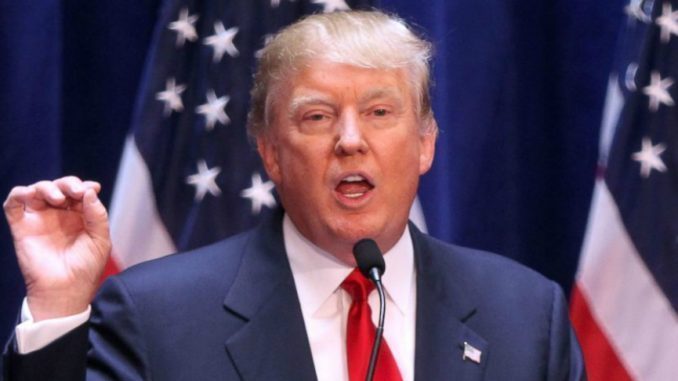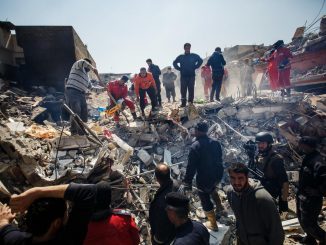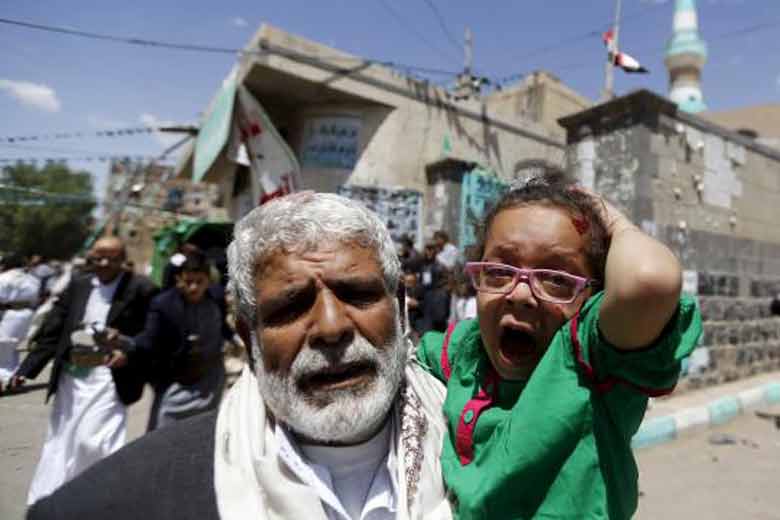
The US president Donald Trump has signed a revised travel ban that will temporarily halt entry to the US for people from six Muslim-majority nations who are seeking new visas, though allowing those with current visas to travel freely.
Donald Trump has signed in January an executive order that will limit immigration and refugees from some Muslim-majority countries, fulfilling a campaign-trail promise to introduce what he dubbed “extreme vetting.”
The order bans Syrian refugees, claiming they are “detrimental” to the interests of the United States, and suspends the refugee admissions program for all countries for 120 days. It will also suspend the issue of visas to nationals of countries where the US believes they do not provide enough information on an applicant to decide whether or not they are a security or public safety threat.
Those countries were Iran, Iraq, Libya, Somalia, Sudan, Syria, and Yemen.
The previous order and its consequences
The previous order meant that about 500,000 green card holders who reside in the U.S. but are originally from one of the seven countries will need a waiver to return to their homes, White House officials said Saturday. It also applies to people from the seven countries who hold dual citizenship and are not U.S. citizens. This means that people of both French and Yemeni nationality, for example, would be denied entry.
This order created chaos in the US as many considered it unlawful and sought to stop its implementation.
U.S. District Court Judge James Robart of Seattle temporarily halted Trump’s travel ban on Jan. 27 as he considered the lawsuit. He did this by granting a Temporary Restraining Order.
Justice Department lawyers then appealed to the 9th Circuit, arguing that the president has the constitutional power to restrict entry to the United States and courts cannot second-guess his determination that such a step is needed to prevent terrorism.
Later, the appeals court said the administration failed to offer “any evidence” to justify the ban, which the president says is crucial to keep the US safe from terror attacks.
“There is no precedent to support this claimed unreviewability, which runs contrary to the fundamental structure of our constitutional democracy.”
Trump has said in response that he has “no doubt” his administration will win legal challenges to his travel ban, and his administration said they were planning to escalate the legal dispute to the Supreme Court.
The new order
However, Trump’s administration kept working on a new travel ban order and announced it on Monday.
The new Trump directive aims to address legal issues with the original order, which caused confusion at airports, sparked protests around the country and was ultimately blocked by federal courts, according to a fact sheet obtained in advance by The Associated Press.
The revised order is narrower and specifies that a 90-day ban on people from Sudan, Syria, Iran, Libya, Somalia and Yemen does not apply to those who already have valid visas and will come into effect at midnight on March 16.
“Green card” holders – that is, those who have US permanent residence – will not be affected by the order.
The White House also dropped Iraq from the list of targeted countries after pressure from the Pentagon and State Department, which had urged the White House to reconsider in view of Iraq’s role in fighting Islamic State (ISIS).
The Iraqi government said the revised order sends a “positive message” about the future of bilateral relations as the two countries work to combat ISIL, also known as ISIS.
Saad al-Hadithi, government spokesman, said the decision to revise the ban shows that there is a “real partnership” between Washington and Baghdad.
An analyst said: “[US officials] have tried to take what was the existing executive order, make it much tighter, and essentially make it bullet proof in the courts.”
Rex Tillerson, US secretary of state, said that the renewed ban is “a vital measure for strengthening our national security”.
“With this order, president Trump is exercising his rightful authority to keep our people safe,” he said.
Attorney General Jeff Sessions said the order “responsibly provides a needed pause so we can carefully review how we scrutinise people coming here from these countries of concern”.
“Three of these nations are state sponsors of terrorism,” Sessions said, referring to Iran, Sudan and Syria, adding that others had served as “safe havens” for fighters.
What difference brings this new order?
According to the fact sheet, the Department of Homeland Security will conduct a country-by-country review of the information the six targeted nations provide to the US for visa and immigration decisions. Those countries will then have 50 days to comply with US government requests to update or improve that information.
Additionally, Mr Trump’s order suspends the entire US refugee programme for 120 days, although refugees already formally scheduled for travel by the State Department will be allowed entry. When the suspension is lifted, the number of refugees allowed into the US will be capped at 50,000 for the fiscal year 2017.
Other changes are also expected, including no longer singling out Syrian refugees for an indefinite ban. Syrian refugees will now be treated like other refugees and be subject to the 120-day suspension of the refugee programme.
The new version of the order is also expected to remove language that would give priority to religious minorities. Critics had accused the administration of adding such language to help Christians get into the United States while excluding Muslims.
“I think people will see six or seven major points about this executive order that do clarify who was covered,” Kellyanne Conway, the presidential counselor, said in an interview with Fox News Channel’s “Fox & Friends.”
She said the new order will not go into effect until March 16, despite earlier warnings from the president and his team that any delay in implementation would pose a national security risk, allowing dangerous people to flow into the country.
Legal experts say the new order addresses some of the constitutional concerns raised by a federal appeals court about the initial ban, but leaves room for more legal challenges.
“It’s much clearer about how it doesn’t apply to groups of immigrants with more clearly established constitutional rights,” said Stephen Vladeck, a law professor at the University of Texas . “That’s a really important step.”
Removing language that would give priority to religious minorities helps address concerns that the initial ban was discriminatory, but its continued focus on Muslim-majority countries leaves the appearance that the order is a “Muslim ban,” Mr Vladeck said.



